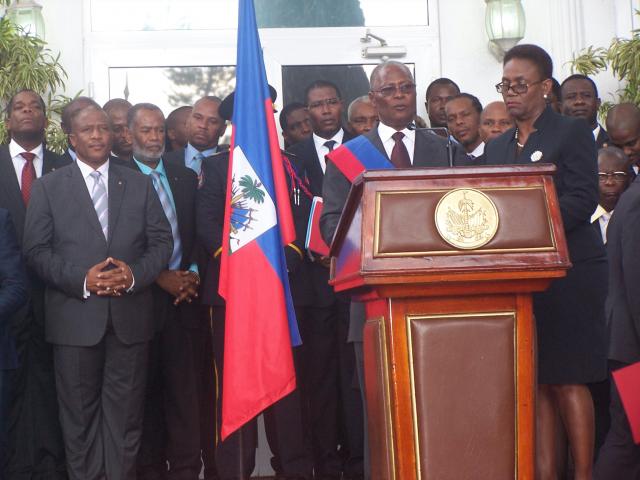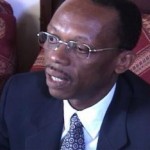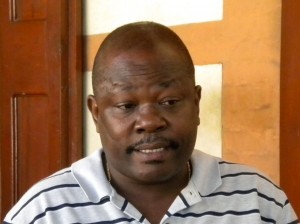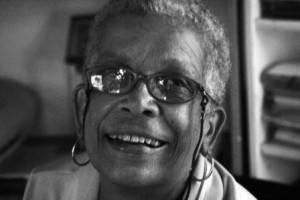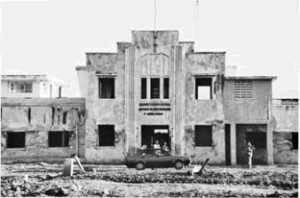by Marie Laurette Numa and Kim Ives. Originally posted at Haiti Liberté
Since the Feb. 6 agreement reached between outgoing President Joseph Michel Martelly and the presidents of the Parliament, Jocelerme Privert (Senate) and Cholzer Chancy (Chamber of Deputies), there was no doubt that the interim president would be Jocelerme Privert.
Both the 1987 Constitution and the “Group of Eight” (G8) opposition presidential candidates called for a judge of the Supreme Court (Court de Cassation) to fill the presidential vacuum. So the Organization of American States (OAS) – Washington’s “Ministry of Colonial Affairs” – in league with the outgoing Martelly clique and Haiti’s ruling class, had to find a formula with a veneer of legality and compromise. Moreover, they needed an interim president who could act as a fireman to pacify Haiti’s streets while at the same time neutralizing Haiti’s formal and informal opposition groups, particularly the G8.
Since Feb. 7, when Martelly handed the presidential sash to Privert (then President of the National Assembly), the theatre in the halls of power is just to blunt and bluff the revolutionary upsurge that has been boiling across Haiti and assure a smooth transfer of from one neo-colonial regime to another. The majority of parliamentarians came to their seats through the same violent, fraudulent elections of Aug. 9 and Oct. 25, 2015 that have sent the masses into the streets demanding their annulment. So the supposedly democratic “debate” in this rump Parliament is only to fool the naive, silence the recalcitrant, and open the door to haggling for ever-coveted ministerial posts.
What drama they were able to generate with a very tight first vote in the Parliament! In the Senate, Privert got 13 votes and Edgar Leblanc Fils, of the Struggling People’s Organization (OPL), 10. Among the Deputies, Privert got 45 votes and Leblanc got 46. There was one blank ballot and not one vote for Déjean Bélizaire, a former Senate president in 1991 before the coup d’état against former President Jean-Bertrand Aristide.
Continue reading Jocelerme Privert replaces Michel Martelly as Haiti’s President

